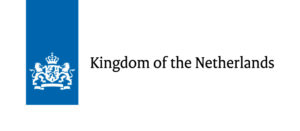About the lectures
Artist collective de Onkruidenier will talk about their views of the relationship between landscape, science and art. The best-known artists of the Renaissance often practised many different professions and were seen as craftsmen as well as scientists. In the art historical canon, the invention of perspective drawing is attributed to Brunelleschi and his contemporaries. In the Renaissance, it led to innovation in painting. De Onkruidenier is interested in this observational tendency: where does this urge to faithfully capture our surroundings come from? For the collective, connecting different perspectives, narratives and knowledge about a landscape is indispensable for understanding the landscape. During their residency at KNIR, de Onkruidenier will experiment themselves in the Pontine marshes below Rome.
After a brief introduction about her first stay in Rome, the inspiration Rome brought her and about the history of the Prix de Rome, Marjo Postma will talk about nature as a source of inspiration, especially about the ‘Herbarium’. Herbaria have been a scientific way of recording flora during voyages of discovery for centuries. Marjo is intrigued by the way of noting it involves.
She will talk about her work and show images of drawings, ceramics and textile work. There will also be some works on display. After the lecture she will make a ‘life’ drawing, the audience can watch the progress through a projection and also ask questions. After the performance, she will raffle the drawing among those present.
About the Artists
Artist collective de Onkruidenier was founded in 2013 and consists of Jonmar van Vlijmen, Rosanne van Wijk and Ronald Boer. The collective investigates historical, cultural and potential transformations of nature and its potential to evolve humans. They do fieldwork – often jointly with audiences – collecting plants, the stories and histories associated with them. As ecosystem futurists, they speculate on aquatic culture to arrive at new interpretations about the relationship between humans and (urban) nature, both above and below sea level. An important role here is to question systems that are often taken for granted. In the development of their work, interactions with audiences and experts such as farmers, residents and scientists create new stories.
Since Marjo Postma won the Prix de Rome in 1984, she has visited the Eternal City countless times. The first time was for an introduction to Professor Johannes Offerhaus at the KNIR in the Villa Borghese. During that conversation, he invited her to live and work at the KNIR for a year. She accepted the invitation with both hands. Everything that moves, in the air, on the ground, plants, trees and underwater has her interest. Characteristic of her work is that it consists of recognizable and natural forms that on closer inspection are mysterious and enigmatic. Her view of nature is intimate, loving and humorous with respect for everything that grows and flourishes. She regularly exhibits in the Netherlands and Italy.
This event is made possible thanks to the generous financial support of




